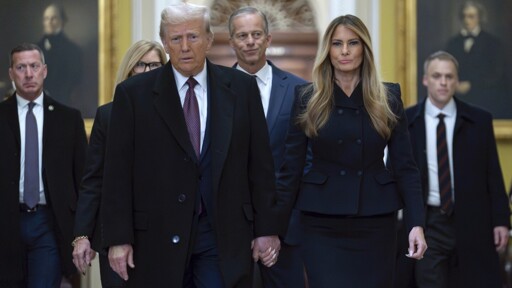Summary
Donald Trump, previously committed to an “America First” foreign policy, has embraced an imperialist agenda in his second term.
He’s proposed Greenland’s annexation, pressuring Canada to join the U.S. as its 51st state, and threatening Panama Canal control.
Critics, including former allies, warn these actions undermine U.S. alliances, embolden adversaries like Russia and China, and disrupt global norms on sovereignty.
While supporters claim these moves address national security, allies such as Canada and Denmark have condemned the rhetoric, with experts warning of potential NATO conflicts and diplomatic fallout.
His platform was supposed to be grocery prices and immigration. What happened to those?
deleted by creator
How to blame literally the world for your own internal problems like debt healthcare and wage slavery
Just keep breaking shit and pointing fingers instead of sucking it up and dealing with spending issues and printing cash
with experts warning of potential NATO conflicts and diplomatic fallout.
There’s the point. Once again, Trump is charged with weakening NATO and Western alliances.
Watching racists bark about h1b’s due to racism but somehow ignore annexing Mexico.
Edit derp keyboard and no proofreading.
Don’t have to issue visas if Mexico becomes a US state.
Of course, if Mexico becomes a US state then theoretically the Mexicans become US citizens, with all the rights and protections that affords.
I’ve felt for a while now that there is more than one kind of nationalism. One is supremacist, colonialist, and imperialist. This, I think, is the nationalism people think of when they think of nationalism. This is the nationalism of Nazi Germany, for instance. It’s the nationalism of people who believe strongly in hierarchies, especially ones that they believe are “natural.” They believe that some individuals are inherently superior to other individuals, and they believe that some groups are inherently superior to other groups. They seek to establish hierarchies of power within their nation, but also between nations.
In the context of today’s world, in which the US is the dominant global superpower, American “nationalists” believe that the US is inherently superior to all other nations, and, therefore, that the US global hegemony should not only be maintained, but expanded. They believe it is right and good and natural for the US to rule and dominate the globe, because, in their mind, we are just superior to all other nations.
I think there is another kind of nationalism, though, one of people who seek independence and autonomy for their group or nation, usually from an imperialist power. It’s one in which people who value their distinct culture and history want to see to it maintained and preserved. They don’t believe their culture is superior to all others, they just believe it should exist without interference from outside groups.
I understand and sympathize with the latter kind of nationalism, but I do not understand, and I in fact hate and despise, the former. I do not believe that any group of people is inherently superior to any other. I reject supremacism in its entirety. I believe that any nation has just as much right to exist peaceably as any other. I wholeheartedly reject colonialism, expansionism, imperialism, and supremacism, but I support the right of any nation to exist, on their piece of the Earth, with their distinct culture, independently and autonomously, so long as they can do so peacefully.
deleted by creator





